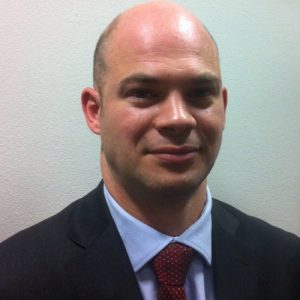Pathfinder International caught up with veteran and now Vice President Senior Risk Specialist at Bank of America Merrill Lynch, Ian Philpot to hear about his route into Risk Management and all about his current role…

How did you get your job?
|
Get weekly jobs and transition advice. Unsubscribe anytime. |
I fell into Operational Risk formally after 13 years in the military. I went to an open day at Bank of America specifically for Armed Forces Veterans and got a job in project management. I then worked my way up the organisation to my current role. I think my boss took a chance on me as I already had a risk management view of the workplace honed from my military career.
What’s a typical day like as a Senior Operational Risk Specialist?
A typical day for me as a Senior Operational Risk Specialist in Scenario Analysis and Capital Planning involves deep engagement with 1st line stakeholders from COOs to HR management across the firm trying to broker a conversation around participation and ownership of Scenario Analysis.
The day is also likely to involve working in some way to enhance the Scenario Analysis Programme, be that through updating our procedures or bringing in a new process. In truth, my current role is expanding, allowing me to take part in the running of other Operational Risk Management Framework (ORMF) elements such as RCSA or losses, right through to devising training materials on the ORMF.
What do you enjoy most about your job?
The variety. Although my role is specific to Scenario Analysis & Capital Planning I actually get involved in tons of other work across the programme elements.
What are the challenges?
Due to the size of the firm it is probably getting the awareness and importance of the programme understood by as many first line stakeholders as possible.
What would you say to others thinking about taking the Certificate in Operational Risk Management?
I would say be prepared for quite a bit of study time but the reward is getting the right knowledge you can take with you for life. I think that the course is very intuitive and has great diagrams to explain the key concepts. I was also impressed with the amount of extra real-life event information provided as this helped bring the concepts to life.
What have you been able to put into practice in your job as a result of what you have learnt?
The course has helped improve my overall ORMF knowledge to such an extent that I’m being asked to take more of a lead role within the delivery of other framework elements with key 1st line stakeholders and I have been asked to help cross-train other 2nd line colleagues on various key points within the ORMF.
Top tips:
1: Read around the subject in question as much as possible, including documentation from regulators (PRA, FCA, CBI, ECB) and industry bodies (ORX, IOR, IRM etc) related to Scenario Analysis and Internal Capital Adequacy Assessment Plan (ICAAP).
2: Search job related social media (such as LinkedIn) to gain contacts within the companies/areas you are interested in, follow up any conversation with an invite to meet.
3: Experience can sometimes be more important to an employer than qualifications, so relate every experience you have in the context of the role.
Find out more about ELCAS funding for the Certificate in Operational Risk Management HERE!